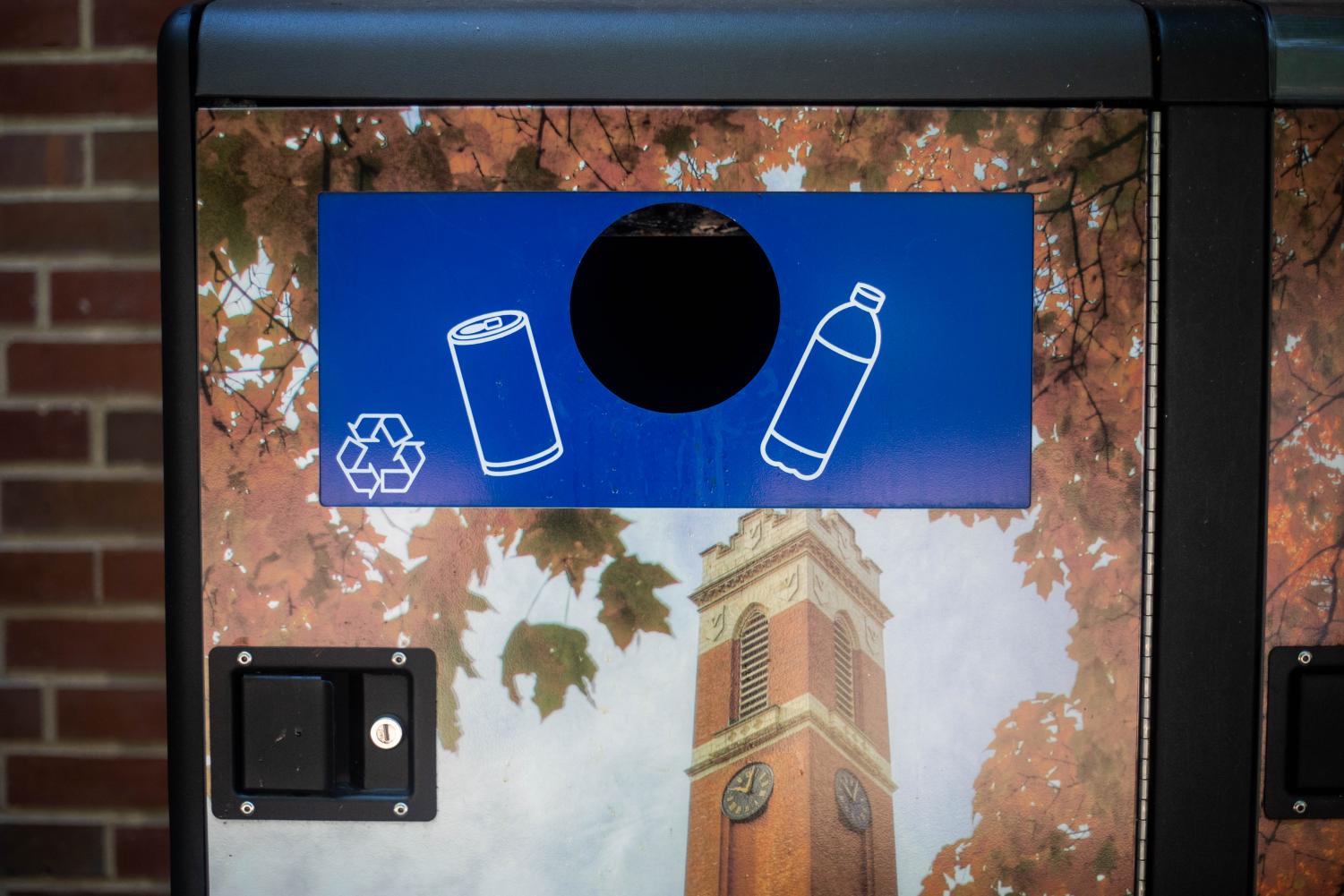
Last Tuesday, my dorm received a few extra recycling bins after I asked maintenance if they had any spares. After some slight redecorating, designating bins for certain items, I insisted that my roommates come check out our new sorted recycling bins. As I showcased our three different bins (one for paper, another for plastic and a third for cans and bottles), I highlighted how easy it would be for us to recycle more items going forward. Mid-demonstration, though, I realized that our real goal should be to recycle less. That may sound crazy coming from a recycling zealot such as me, but hear me out.
Recycling plastics, aluminum, paper and other items is certainly better than throwing them in the trash, where the majority of items end up in landfills. Few would argue that burying trash is a sustainable practice. It’s not only constrained by land availability, but its potential for contaminating soil and groundwater poses a serious threat to future generations. Incinerating trash is equally undesirable, as it contributes to air pollution. On the surface, recycling appears to be a superior alternative, but it faces its own sustainability issues.
For the past 25 years, China has purchased and imported half of the worlds’ recycled waste. Its network of recycling processors repurposed that waste into new products for consumer goods, packaging, furniture, textile and other markets. However, in Jan. 2018, China placed a ban on importing foreign recyclable materials, namely plastics, due to much of the material being contaminated and, therefore, unprocessable. Prior to the China ban, the U.S. sent seven million tons of recyclable materials to China yearly, including more than 70 percent of our collected plastic waste. However, nearly a third of the recyclables we shipped to China were contaminated and unable to be reprocessed.
According to University of Georgia Scientist Jenna Jambeck, approximately 1.3 million to 3.5 million metric tons of plastic the U.S. sent to China was unable to be reprocessed and, ultimately, ended up in the Pacific Ocean. Additionally, the Chinese villages receiving the materials became overwhelmed by the sheer volume of contaminated recyclables. As garbage and toxic chemicals piled up, those villages were facing their own pollution woes. Other countries in Southeast Asia tried to assume some of the volume, but they lacked the infrastructure to support such a recycling effort. Given that the cost of hauling away recyclable waste continues to increase while the market to purchase those recyclables dwindles, recycling is quickly becoming unprofitable. As a result, many U.S. cities are scaling back their recycling efforts. That means many would-be recyclables are once again finding their way to landfills or incinerators.
So, does that mean we should stop recycling altogether? Absolutely not. Recycling is still critical; however, our goal should be to consume less material that requires recycling. As my Environmentality partner Philip Gubbins says, the new mantra is “Reduce, reuse, THEN recycle.”
So, what can we do as a country? We can certainly invest in expanding recycling processing plants so that we are more capable of managing our own waste. The government can also incentivize manufacturers to make their products more suitable for recycling so that fewer items are rejected as contaminated. More importantly, though, we can reduce the amount of plastic we consume as a country.
In terms of what we can do locally, Vanderbilt Campus Dining’s new “No More Plastic” initiative is a huge step in the right direction. By eliminating plastic beverage containers from on-campus dining locations, Vanderbilt will eliminate 430,000 plastic bottles from entering the waste stream on an annual basis. This number will only increase as plastic bottles are phased out from vending machines in October. Initiatives such as these are integral if we hope to protect and preserve our environment.
Personally, we can each invest in reusable water bottles and grocery bags, dine in versus take out at the dining halls and be sensitive to the amount of plastic our Amazon purchases or Munchie Mart swipes generate. We can get a recycling bin for our dorm rooms. Glass and aluminum recycling has been less affected, and we still have the opportunity to reduce the volume of items being sent to landfills and incinerators. These are small but important steps we can take to make our own spaces, Vanderbilt and the United States as a whole, more sustainable and environmentally friendly places.
While China’s ban on foreign recyclables has created some chaos for the United States, it also presents an opportunity in that it’s a wake-up call for us all to rely less on recycling and work towards consuming less plastic in the first place.



